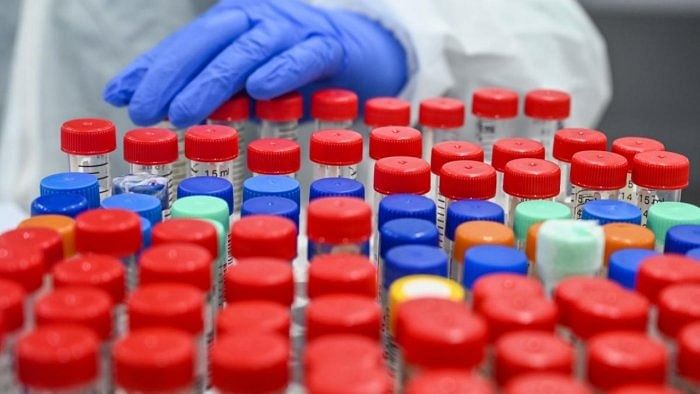
With widespread Covid-19 infections in 22 states, the Centre on Thursday said it would ramp up the daily testing capacity up to 25 lakh by May and 45 lakh by June in order to screen people living in small towns and villages, where the epidemic was moving fast.
In rural areas, the emphasis would be on expanding the rapid antigen tests for screening and isolation of positive patients, Balram Bhargava, director general of Indian Council of Medical Research, said on Thursday.
The aim is to carry out 45 lakh testing by June 30, of which the gold-standard RT-PCR would constitute 18 lakh tests, whereas, rapid antigen tests would be 27 lakhs. For comparison, only for two days, the daily testing level crossed the 20 lakh mark so far.
Also read: After increase in Covid case positivity for 10 weeks, decline reported since last 2 weeks: Govt
Also, it would mean that nearly 60 per cent of the testing would be conducted using the RAT – a stark contrast from the existing government guidelines in which it has been asserted that nearly 70 per cent of the testing should be by the RT-PCR method.
So far, RAT was not a preferred choice as it could miss nearly 50 per cent of cases. But with the majority of the RT-PCR laboratories being concentrated in the cities, the government modified the testing strategy with greater use of RAT because rapid test facilities could be set up quickly in rural areas and the results would come in 15 minutes.
Bhargava said such a change in the testing strategy was required for early detection, isolation and home care of Covid-19 patients as 80-90 per cent of such patients could be treated at home.
Only those who are RAT negative and having Covid-19 symptoms, need to go for a second test using the RT-PCR method.
“It is high time that India increased its Covid-19 testing capacity. While the daily new cases have more than quadrupled compared to the peak of the first wave, the daily average testing had only increased by about 60 per cent. This has led to a very high test positivity rates and the possibility of missing too many new cases in the present wave,” Rijo John, professor of health economics at the Rajagiri Institute of Social Sciences, Kochi told DH.
“More testing is always good. As long as an increase in antigen testing capacity is done, not by compromising the RT-PCR capacity, such capacity augmentation is always welcome.”
The ICMR has approved RATs made by 41 companies of which 31 are indigenous. Several state governments have placed procurement orders. The plan is to set up RAT booths at primary health care centres, community health care centers and 1.87 lakh subcentres.
In addition, RAT booths will be set up with the community in schools, colleges, community centers and RWA offices.
On the home-based diagnostics of Covid-19, Bhargava said ICMR approved one such RAT kit for home testing, while three more such kits are in the pipeline. The one, approved by the ICMR, has been developed by a Pune-based company known as Mylab.
